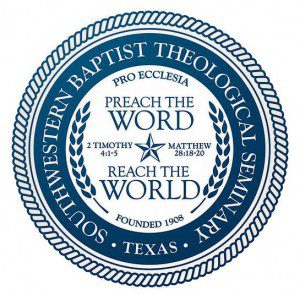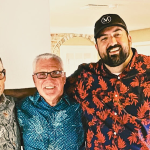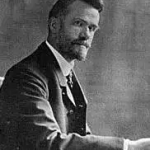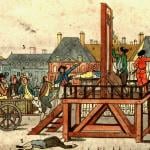On Tuesday I posted Part 1 (“When Jesus is Everything, There’s Nothing to Fear“) of my interview with Tullian Tchividjian, grandson of Billy Graham and head pastor at the renowned Coral Ridge Presbyterian Church in Fort Lauderdale, Florida. Below is Part 2:
* * *
So our relationship with God in Christ is the “one thing needful,” and you speak of how this liberates us because we don’t need the approval of others. We don’t need anything because we already have Christ, who is everything. What does this mean for marriage?
 When I speak on this topic, marriage is one of the illustrations I use because it touches home with so many people. All relational tension is the result of me feeling like I need something from this person and I’m not getting it. The only thing with the power to relieve that tension is the realization that I’m now free to give everything I have without needing anything in return.
When I speak on this topic, marriage is one of the illustrations I use because it touches home with so many people. All relational tension is the result of me feeling like I need something from this person and I’m not getting it. The only thing with the power to relieve that tension is the realization that I’m now free to give everything I have without needing anything in return.
When I come home late from a long day, what the next two hours look like will be largely dependent on my grasp of the gospel. I can go home at the end of a long day and feel very needy and entitled. I deserve, I might think, love and affection and attention from my wife and three children. And if I don’t get it from them, given everything I’m sacrificing for them, I may feel that I’m entitled to disappointment and anger.
Yet when you get the gospel, you realize, if they never give me love or attention or respect, I haven’t lost anything. In fact, the grandest display of the power of the gospel in the life of the believer is when I love those who hate me. As Jesus said, it’s easy to love and respect those who love and respect you. But where does the power come from to be that counter-intuitive? It comes from the otherworldly power of the gospel.
In your story, the truths took hold in you in the midst of great hardship. I could tell a similar story myself. What’s the role of suffering in helping us to see what is truly necessary and what is extraneous or even distracting?
This is the subject of my next book, coming out in the fall, tentatively entitled Glorious Ruin: How Suffering Sets You Free. The overarching thesis of the book is that suffering does not rob you of joy. Idolatry robs you of joy. Suffering is often something being taken away from us that we feel we cannot live without. For some people, it’s their body, their health, their minds, a relationship, and so on. But the question I always ask is, What is the one thing that, if God took it away from you today, you would feel like life isn’t worth living?
If you answer that question, you start to get a handle on what your idols are. So often for me, suffering has been the result of those seasons or those discrete moments when God is prying my hands open and taking something away from me that I’ve been holding onto more dearly than him. Once that thing is taken away, you realize that you’re free. You probably never knew, until that thing was taken away, how dependent upon it you’d become. Then it’s gone and it strikes you: Wow, I was clinging to fool’s gold.
This silly illustration I give people when I travel is, I cannot tell you how many times I’ve walked around my house barking at my wife or kids because I cannot find my keys and I’m certain someone else has lost them. Then, lo and behold, a few minutes later I’ll stick my hands in my pocket and find my keys.
As silly and stupid as that sounds, that’s the way most of us live our lives. They keys are in our pockets — and we’re frantically trying to find something we already have. Suffering is like that. We become dependent on something or someone to make us feel like we matter. But when that is stripped away, we cry foul and we don’t want to live anymore. This is the definition of idolatry. It’s not a wooden statue. It’s something we’re holding onto more tightly than God, and something we’ve become dependent on for our value and sense of importance. God loves us so much that he’ll take those things away from us and set us free.











